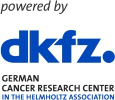Description
Allogeneic hematopoietic stem cell transplantation (allo-HCT) is the only curative therapeutic option for high-risk acute myeloid leukemia (AML) patients. The success of allo-HCT relies on the so-called graft-versus-leukemia (GVL) effect. This term defines the immunological process in which residual leukemic cells are eliminated by donor immune cells. However, more than 30 % of AML patients relapse after allo-HCT due to leukemic cells escaping immunosurveillance, for example, by expressing immune checkpoint ligands.
The immune checkpoint molecule CD155, also known as polio virus receptor, is highly expressed on AML blasts, and previous studies have shown that high expression of CD155 is correlated with higher relapse rates post allo-HCT.
In this study, we investigated the role of CD155 in the GVL effect and identified the oncogenic signaling pathways that regulate CD155 expression. Using allo-HCT mouse models, we found that the absence of CD155 on both donor immune cells and on leukemic cells is beneficial. Furthermore, blocking the immune checkpoint using an anti-CD155 antibody prolonged the survival of leukemia-bearing mice, indicating the importance of CD155 for GVL effect. By introducing oncogenic mutations commonly found in AML patients into mouse hematopoietic stem cells, we found that multiple oncogenic mutations, such as cKit-D816V and NRAS-G12D, enhance CD155 expression. Treatment with inhibitors targeting the specific oncogenic mutation or the downstream signaling pathways resulted in reduced CD155 expression.
These findings highlight the potential of targeting oncogenic pathways regulating CD155 expression as a therapeutic strategy to enhance the GVL effect and reduce relapse rates in AML patients post-allo-HCT.
| Preferred type of presentation | Poster Presentation only |
|---|

